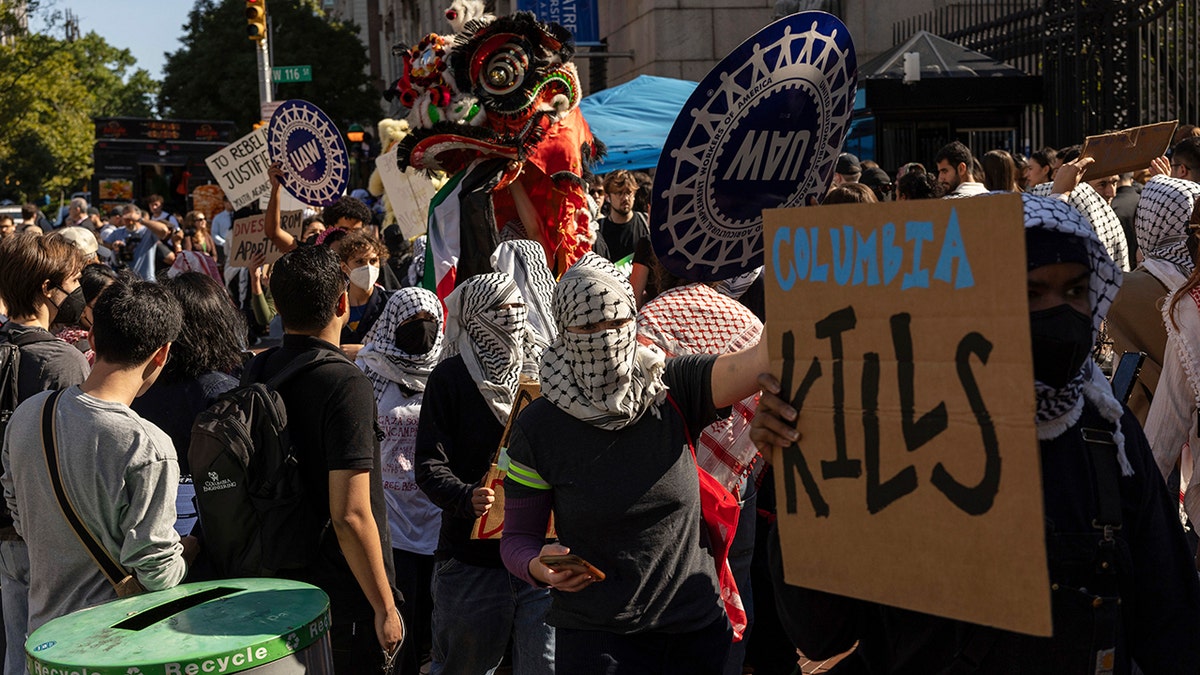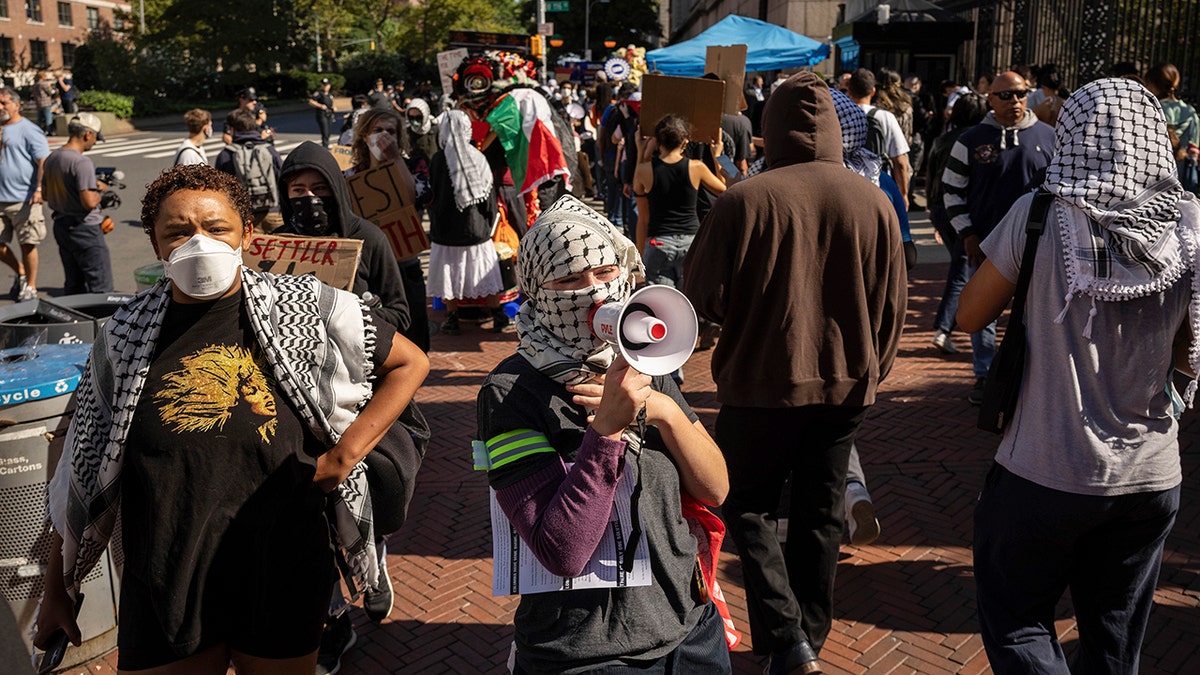Harvard, Columbia rank last in nonprofit's 2025 college free speech scorecard
For the second year in a row, Harvard University's "abysmal" free speech climate earned it the lowest ranking among 251 colleges and universities scored by the Foundation for Individual Rights and Expression.
College students across the country have lost confidence that university administrators will protect free speech, especially on campuses that saw protest encampments over the Israeli-Palestinian conflict, according to the results of a new free speech survey.
And researchers don't see the situation improving any time soon as students return to class for the fall semester, especially with the presidential election on the horizon.
"I think we're going to see a lot happen this semester. And not in a good way," Sean Stevens of the nonprofit Foundation for Individual Rights and Expression told Fox News Digital.

Anti-Israel demonstrations continued in New York City on the first day of classes at Columbia University. This past spring, protesters occupied an area of the campus for about two weeks before police were called in to break up the encampment. (AP/Yuki Iwamura)
FIRE, a pro-First Amendment nonprofit, worked with College Pulse to survey more than 3,800 students at 30 universities specifically about encampments and protests. The findings were released last week, alongside FIRE's annual College Free Speech Rankings.
Nearly three-quarters of surveyed students told researchers it is at least "rarely" acceptable to set up encampments as part of a protest, and 59% felt the same about occupying buildings, according to the survey.
Stevens, FIRE's chief research adviser, noted that many of the encampments seen this past spring at universities like Columbia, NYU and UCLA last year likely violated time, place and manner restrictions, so colleges may have been within their rights to break up the protests.
But students — particularly liberal students — expressed much lower confidence in their colleges' free speech climates on campuses where encampment protesters were arrested, the survey found.
"We've seen a real shift in their attitudes," Stevens said. "This is evident on some campuses where the liberal students are now very concerned about the security of free speech on campus, even more so than conservative students."
Prior to the encampments, conservative students were usually the ones more concerned about free speech, he noted.
The survey also revealed a double standard in students' acceptance of protest-related actions.
FIRE asked students if it was acceptable for pro-Palestinian and pro-Israeli students to do things like hand out fliers, march, establish encampments, burn an American flag or deface school property. Though the difference was small, a higher percentage of students surveyed considered every protest action more acceptable when hypothetically performed by a pro-Palestinian student.
COLLEGES FACING ISRAEL-HAMAS UNREST MORE LIKELY TO HAVE THIS FREE SPEECH PATTERN
FIRE's main college speech survey of nearly 60,000 students revealed another concerning attitude toward free expression, Stevens said.
This year, 52% of students said blocking students from attending a campus speech would be at least "rarely" acceptable, up from 45% in 2023 and 37% in 2022. And a third of students said using violence to stop a speech would be at least "rarely" acceptable, up from 27% the previous year.
Stevens doubted the speech environment on campus would improve much this year.
"There's a very combustible situation here. The Israeli-Palestinian conflict is still going on, and could potentially be expanding, with Israel and Hezbollah now trading missiles at times," he said. "Also the presidential election is coming up in a couple months. And that's clearly a very charged topic for many people on campus too."
Anti-Israel protests resumed on the first day of classes at Columbia last week, with demonstrators gathering at the school's gates in an incident that led to two arrests but was categorized as "peaceful" by police.
Camping is now banned on campus, according to Reuters, and gates that used to remain open are now closed, with guards only allowing students and pre-registered guests to enter university grounds.

Anti-Israel protesters demonstrate outside Columbia University on Sept. 3, in New York City. Columbia was one of 30 universities where students were surveyed about protest encampments and related speech issues. (AP/Yuki Iwamura)
CLICK HERE TO GET THE FOX NEWS APP
Stevens said college administrators have an opportunity to set a good example for students going forward. Universities that scored well on this year's free speech rankings clearly articulate their commitment to free speech, he said, pointing to the top-ranked University of Virginia as an example.
"When a controversy has arisen, they not only [don't] cancel the speech or refuse to sanction a scholar or student or speaker, but they've literally stood up and explained why," he said. "It's like, 'No, we do not do this here. We do not censor, we do not disinvite speakers, we don't censor speech.'"
He added, "Whereas schools like Harvard, Columbia, when they capitulated to the protesters, well, now you're signaling that you'll do this again when somebody gets loud and makes a big enough stink about something."





















